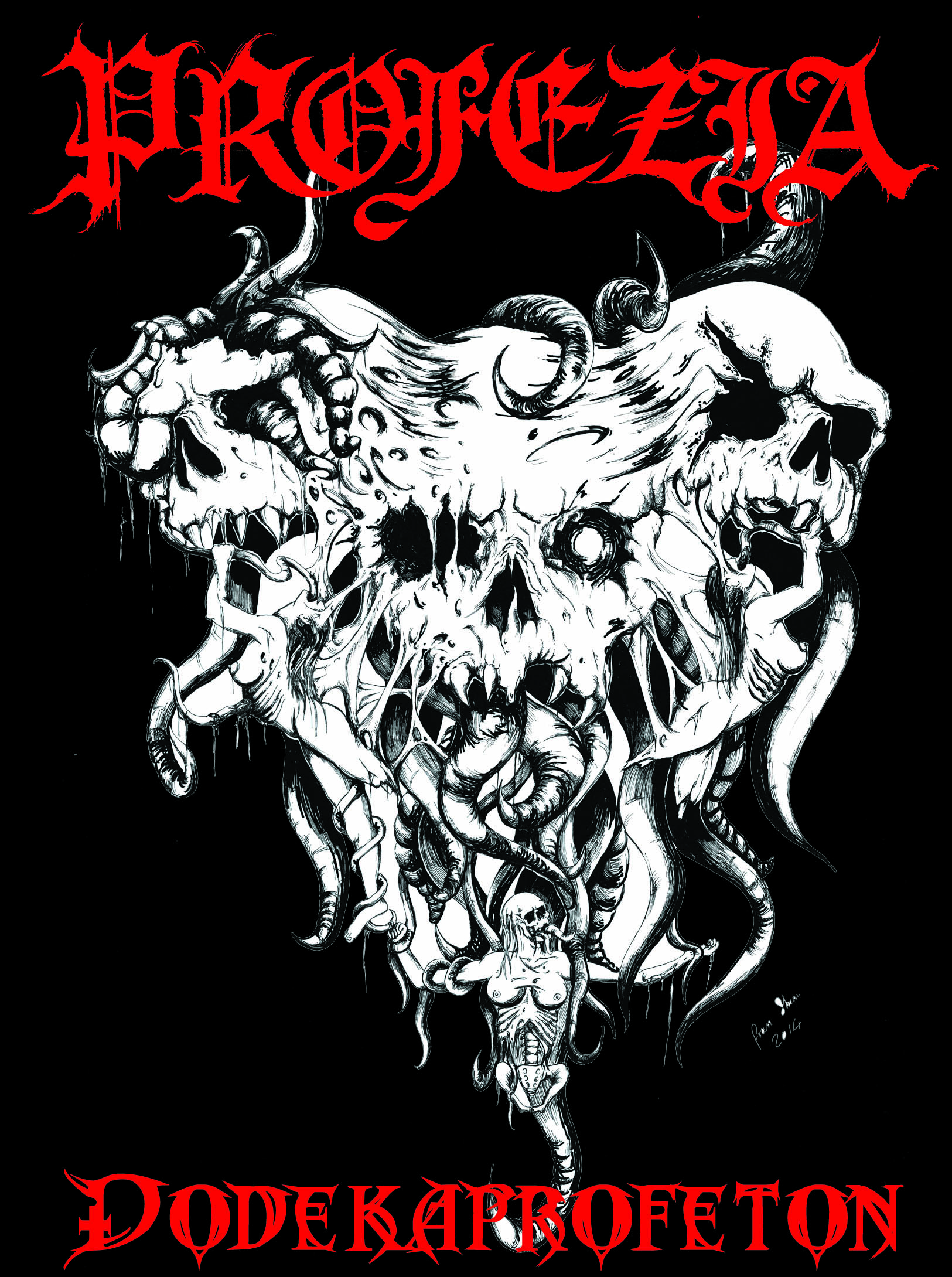
It has been quite a few years since the last Profezia album, the project of Abhor member Ksavir. While the band originally started off playing black metal with a distinctive second-wave sound, recent years saw the roster expand to include members from across Europe and the addition of classical instruments which gave the material a distinctive atmosphere. This year’s Dodekaprofeton treads a path similar to its predecessor Oracolo suicida from 2013 but refines it further, offering dark atmospherics that pull in influence from early Italian black metal and darkwave to complement the rawer black metal riffing.
There may be plenty of slower, lingering melodies to be found throughout the album, but Profezia opts to start off in the completely opposite end of the spectrum. Opener “Malachi” kicks in with a crunchy guitar riff that delivers the same type of jagged edges and icy chills that one would expect from the genre. Based on this track alone it wouldn’t be surprising if listeners prepare themselves for a competently played but familiar black metal album, but the rest of the material expands the sound outwards a bit. “Nahum” is a good showcase of this, as both the piano and violin play prominent roles in this song and add depth to the instrumentation. The interplay between the harshness of the guitar and the softness of the violin play a large role in Dodekaprofeton’s appeal, as the two combine together to add a sense of mystique amongst the otherwise violent sound. As you get further into the material the writing branches out as well, pulling from early Italian and Greek black metal elements along with some hints of darkwave’s melancholy and beauty. Admittedly, like its predecessor some of the longer passages drag on (particularly the first half of closing track “Zephaniah”) and the guitar-centric moments don’t stand out nearly as much as those where the violin is able to twist and turn around them. But despite that the overall atmosphere still proves to be enticing and I suspect that this will be enough to draw listeners back.
The majority of the vocal work on Dodekaprofeton consists of higher pitched shrieks that tower above the instrumentals, but there are also some lower pitches that appear at key moments. It’s a familiar mixture of harsh pitches, but the performance is delivered with such intensity and grit that this still ends up being a positive. One of the highlights in particular is the previously mentioned closer “Zephaniah” where some additional vocals are thrown into the mix and showcase everything from somber chanting to screaming/singing that’s as maniacal as you can get.
Profezia’s latest full length is their best yet, as the songwriting flows together in a smoother manner than before and the classical, melancholic elements are well balanced with the abrasive ones. There are still sections that drag and the more straightforward second-wave riffs don’t stand out as much as the rest of the album, but Dodekaprofeton still ends up as an enticing combination. This is a definite leap forward for the project and hopefully Ksavir continues to embrace the melodic and classical elements, as it gives Profezia some distinguishing features compared to the average black metal band. Dodekaprofeton is available from Moribund Records.
-Review by Chris Dahlberg
If you enjoyed this article, be sure to share it with others to help us grow. You can also like and follow us on the social media of your choice with Facebook, Twitter, and Instagram, and support us on Patreon.